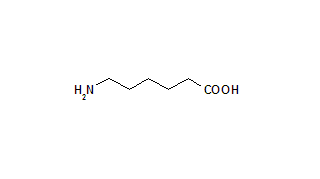Excessive bleeding is a major cause of morbidity and mortality associated with cardiac surgery. Many strategies have been suggested to minimize perioperative bleeding. Levi and colleagues studied all available data on the three most common pharmacologic interventions designed to reduce bleeding associated with cardiac surgery.
Their search for studies of aprotinin, lysine analogs (such as aminocaproic acid and tranexamic acid) and desmopressin in adult cardiac surgery identified 128 randomized controlled clinical trials. Trials were selected for the study if they were of good design, included information on patient selection and follow-up, and included at least one clinically relevant outcome, such as mortality, rethoracotomy, transfusion use and perioperative myocardial infarction. After analysis, 72 trials met criteria for inclusion in the study.
The trials using aprotinin and lysine analogs showed a significant decrease in mortality. In complicated surgery, mortality was reduced by one half. In complicated and uncomplicated surgery, mortality in patients treated with desmopressin did not differ from that in patients given placebo. Overall, treatment with aprotinin and lysine analogs decreased the rate of surgical re-exploration, but the chance of rethoracotomy varied with the dosage of the drug used and the degree of complexity of the surgery. The rate of rethoracotomy was reduced, but not significantly, by the use of desmopressin. Aprotinin and lysine analogs reduced the proportion of patients receiving blood transfusion by about 20 percent. The rate of blood transfusion was also reduced with desmopressin treatment but to a lesser extent. The risk of perioperative myocardial infarction was not increased by use of aprotinin and lysine analogs but was significantly increased in patients receiving desmopressin.
Although the data are based on different dosages of the study drugs and involve patients undergoing surgeries of varying complexity, the authors conclude that aprotinin and lysine analogs decrease perioperative blood loss, mortality and the need for rethoracotomy and blood transfusion.
Anne D. Walling, M.D.
Levi M, et al. Pharmacological strategies to decrease excessive blood loss in cardiac surgery: a meta-analysis of clinically relevant endpoints. Lancet December 4, 1999;354:1940-7.
COPYRIGHT 2000 American Academy of Family Physicians
COPYRIGHT 2000 Gale Group



